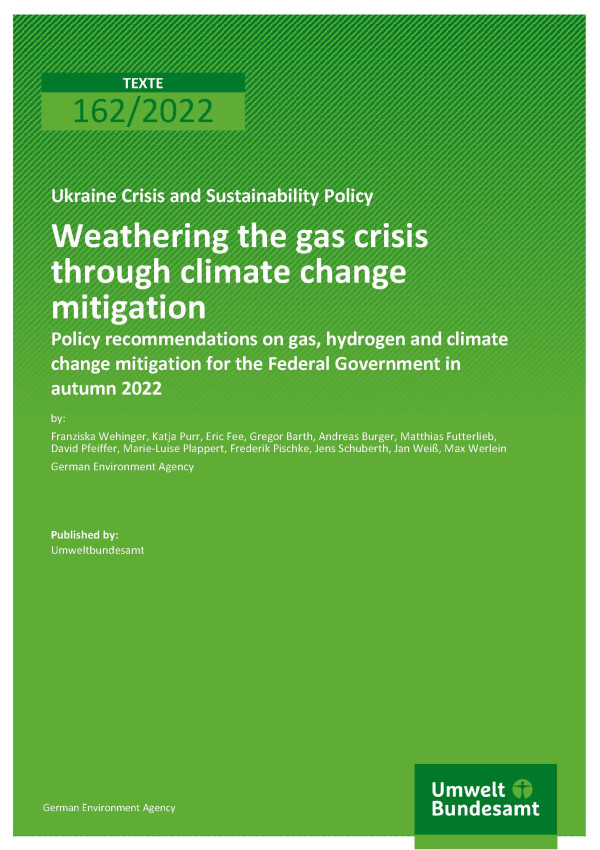The following policy recommendations for the Federal Government will secure the supply of gas for the winter of 2022 and beyond, without sacrificing climate protection goals. Key findings in the second chapter to make liquefied natural gas a transitional solution and to ensure that the supply of gas is as environmentally friendly as possible are to make more efficient use of the gas pipeline infrastructure in Europe, to make the LNG terminals compatible with hydrogen and to diversify by finding new supply countries in the most sustainable way possible. A rapid ramp-up of the use of hydrogen in the steel and chemical industries can safeguard Germany’s competitiveness. The third chapter discusses how the crisis can be overcome through savings in gas and energy consumption, for example through mandatory sector reduction targets and a targeted and tailored energy saving campaign. A few simple steps can also further accelerate the development of renewable energy sources and thus simultaneously mitigate the crisis and achieve the ambitious climate protection goals. The German Environment Agency (UBA) has also identified major potential savings for industry if gas-intensive products are made more recyclable. The focus of the fourth chapter turns to supplier countries and Germany’s role in the international energy crisis. Proposals are made on how fossil fuel lock-ins in industrialised and developing countries can be avoided, e.g. through climate clubs, and how global carbon neutrality can be achieved through sinks and negative emissions.

Climate | EnergyEconomy | Consumption
Weathering the gas crisis through climate change mitigation
Policy recommendations on gas, hydrogen and climate change mitigation for the Federal Government in autumn 2022
Reihe
Texte | 162/2022
Seitenzahl
23
Erscheinungsjahr
Autor(en)
Franziska Wehinger, Katja Purr, Eric Fee, Gregor Barth, Andreas Burger, Matthias Futterlieb, David Pfeiffer, Marie-Luise Plappert, Frederik Pischke, Jens Schuberth, Jan Weiß, Max Werlein
Sprache
Englisch
Andere Sprachen
Verlag
German Environment Agency
Dateigröße
469 KB
Preis
0,00 €
Druckversion
nicht lieferbar
Als hilfreich bewertet
49




